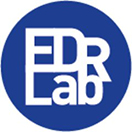The World Wide Web Consortium (W3C) is an international community developing standards and guidelines to enhance interoperability and accessibility of digital publication technologies, initially on the web, now with a borader scope. The W3C Publishing Working Group, a W3C-restricted members group, focuses specifically on standards related to digital books, such as EPUB and Audiobooks. Its scope is to incrementally improve the existing recommendation based on industry demands, provide stable satellite specifications such as Working Group Notes, or provide the base for building major specification revisions.
This group plays a crucial role in shaping the future of digital publishing, ensuring that content is easily accessible, universally usable, and meets the evolving needs of authors, publishers, and readers. The working group meets once per month and twice per year. On April 3 and 4, group members met in person in Sophia Antipolis.
This Publishing Maintenance Working Group was recently rechartered to release EPUB 3.4 before February 2027. Four task forces were established, focusing on various aspects of the EPUB format and its implementation, driving forward innovations and improvements to create an even more robust and user-friendly standard for digital publications:
- Digital Comics: Shinya Takami from Kadokawa and Hadrien Gardeur from EDRLab will lead efforts in the coming months. The discussions primarily focus on better incorporating comics in EPUB, especially scrolled comics, also known as webtoons. The task force will explore various proposals aimed at enhancing the reading experience as well as accessibility and compatibility of digital comics.
- Annotations: Laurent Le Meur (EDRLab) leads the work on annotations, bookmarks, and citations in EPUB, exploring how to standardise their export and sharing across different platforms.
- Accessibility: The task force led by Avneesh Singh (DAISY consortium) will review and consider necessary updates to EPUB accessibility requirements and metadata to be published in a new note entitled “EPUB Accessibility Techniques 1.1.1”.
- Fixed Layout Accessibility: This task force, led by Wendy Reid (Kobo), will follow up by exploring challenges and potential solutions to make these contents more accessible.
In addition to the work driven by the task force, several constructive topics have emerged for discussion. These areas include:
- Evolution of Media Overlays: Marisa De Meglio (DAISY Consortium) demonstrated using WebVTT for synchronised media in EPUBs, highlighting its potential to simplify implementation and reduce the need for IDs. Concerns were raised about backward compatibility, authoring tool support, and the need to avoid disrupting existing workflows. The discussion also explored the possibility of converting between SMIL and WebVTT formats and ensuring that WebVTT supports accessibility features like escapability and skipability. Participants agreed that gathering more information about production workflows and implementation challenges would be valuable before moving forward.
- HTML Serialization: As XHTML is no longer maintained, there is an increasing risk of losing support for that format in core development toolkits widely used for production, validation, and rendering. The impacts of that change on reading systems and validation processes need to be evaluated. It was agreed to open a draft document to review the changes involved.
- Footnotes and Extended Descriptions: Discussions focused on managing footnotes and extended descriptions in EPUBs, emphasising the need for guidance for authors and reading systems. It was agreed that the Community Group Accessibility Task Force will index existing resources. This starting point will help identify potential needs for the standard.
- CSS-authored Dark Mode: Brady Duga (Invited Expert) explained why reading systems usually ignore authored CSS media queries targeting dark mode. Reading systems may use dark mode for their interface, but the reading windows offer many more theme options. It highlighted that dark mode, as defined, cannot solve the problem of transparent images disappearing when dark themes are used on reading systems.
As a full member of the W3C, EDRLab collects inputs from its members and delivers them first-hand information on the main discussions and the ongoing changes to expect. As a full member of the W3C, EDRLab actively participates in the shaping of Web standards. This privileged position allows EDRLab to collect valuable insights and feedback from its members, ensuring their perspectives and concerns are represented in the development process. By engaging in discussions, attending meetings, and contributing to working groups, EDRLab acts as a conduit between its members and the W3C.
Furthermore, EDRLab’s membership enables it to stay at the forefront of emerging technologies and evolving standards. This allows EDRLab to provide its members with timely and accurate information about the latest developments and anticipated changes in the digital publishing landscape. By disseminating this knowledge through various channels, such as newsletters, webinars, and workshops, EDRLab empowers its members to adapt and thrive in an ever-changing digital environm













 contact@edrlab.org
contact@edrlab.org +33 1 83 64 41 34
+33 1 83 64 41 34
